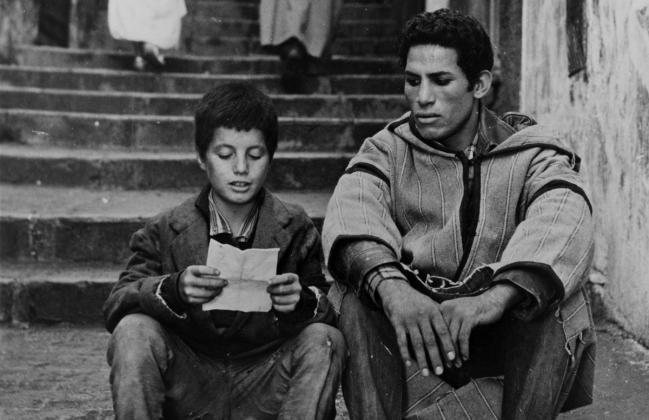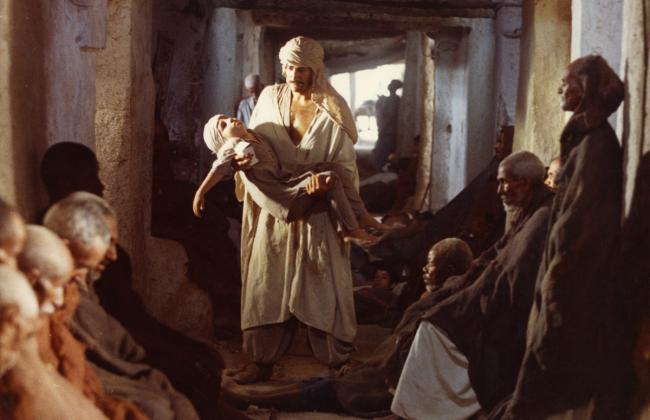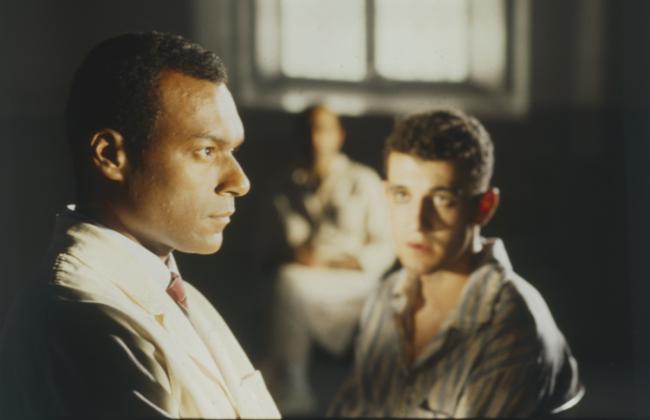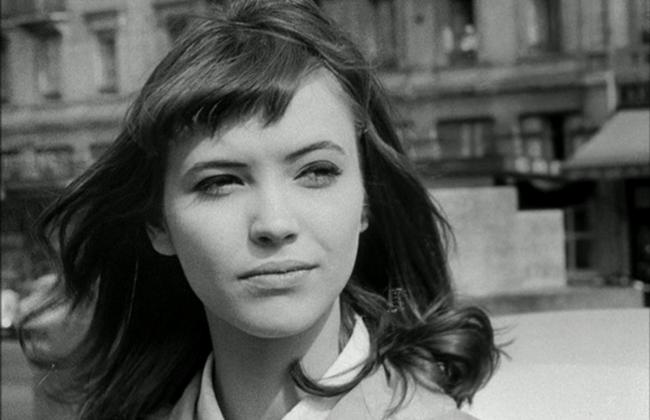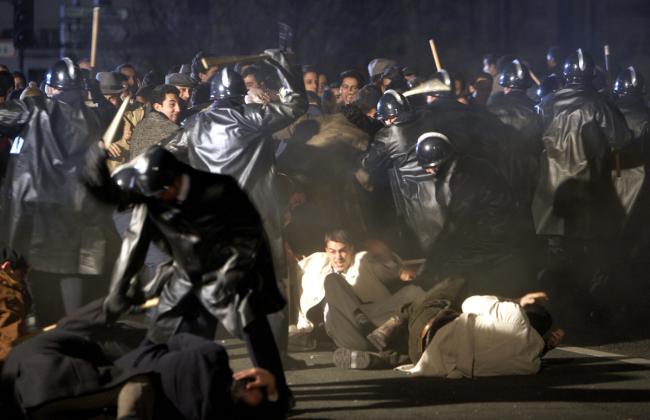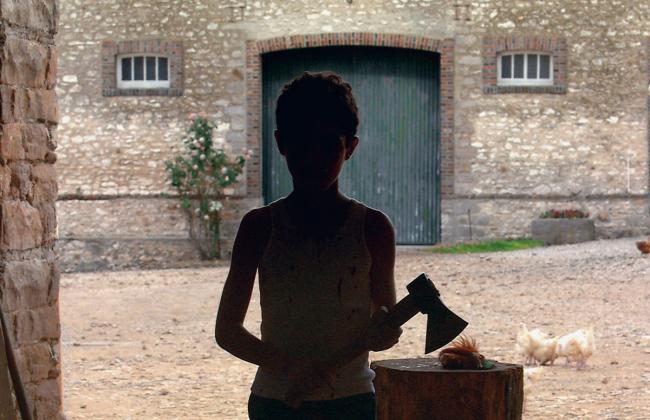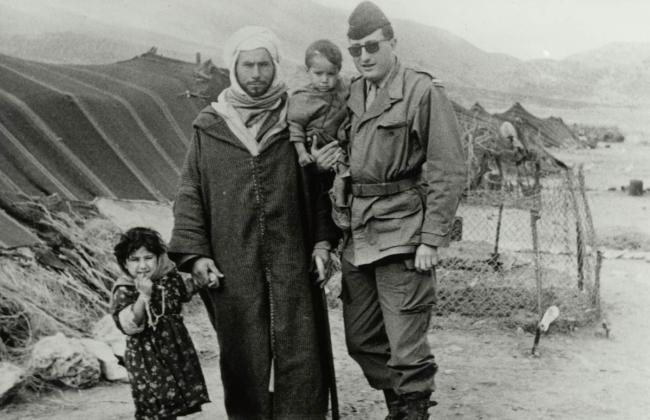The Algerian War of Independence: Cinema as History
January 18–February 26, 2023
Over the course of the six decades since the Algerian War of Independence (1954–62), filmmakers have reacted to the history of this revolutionary period with powerful responses and insightful perspectives. This selection of films deal with the backstory and history of the Algerian War of Independence from a variety of perspectives.
Read full description- Upcoming
Films - Past
Films - Past
Events
Upcoming Films
-
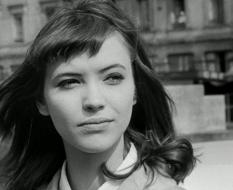
Le petit soldat
Jean-Luc Godard
France, 1963- Friday, February 17 7 PM
While it deflates the thriller genre with all manner of narrative diversions, Le petit soldat was banned for three years in France for deflating another type of fiction: the myth of French antiterrorist heroism in general, and in particular the idea that antiterrorist groups were “above” using torture.
View Details -
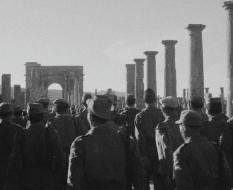
Algeria, Year Zero
Marceline Loridan-Ivens, Jean-Pierre Sergent
France, 1962- Sunday, February 19 5 PM
The groundbreaking documentary Algeria, Year Zero, filmed just months after the end of the war, was initially censored in both Algeria and France. With two rare short films, I Am Eight Years Old, which reveals the effects of the war on refugee children, and Algeria in Flames, wartime footage from the National Liberation Army’s perspective.
View Details -
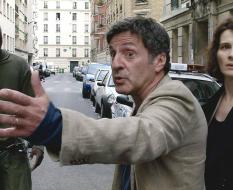
Caché
Michael Haneke
France, Austria, Germany, Italy, 2005- Friday, February 24 7 PM
“The mystery behind a series of anonymous videotapes that appear on the doorstep of a middle class Parisian family gradually turns into a metaphor about the First World’s fear of violence it has itself created and then repressed from consciousness” (Deborah Young, Variety).
View Details -
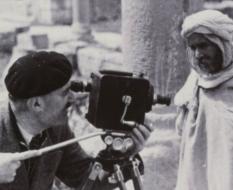
The Zerda and the Songs of Forgetting
Assia Djebar
Algeria, 1982- Saturday, February 25 4:30 PM
Introduce by Soraya TlatliAlgerian novelist and filmmaker Djebar’s experimental The Zerda and the Songs of Forgetting reinterprets French colonial newsreel footage from the period 1912–42, giving voice to those who were once silenced. With The Women, a testament to the call for women’s emancipation in Algeria.
View Details -
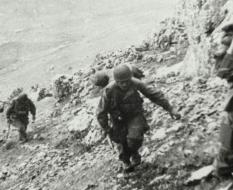
The Undeclared War
Bertrand Tavernier
France, 1992Digital Restoration
- Sunday, February 26 1:30 PM
Assembled from fifty hours of footage, the film focuses on twenty-eight veterans—all conscripts and of every shade of political conviction. The film’s remarkable power and universality lies in the human dimension of these veterans, as they bring the events of the past to life with searing and enlightening honesty.
View Details
Past Films
-
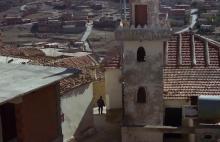
In Mansourah, You Separated Us
Dorothée-Myriam Kellou- Sunday, February 12 4 PM
Algeria, France, 2019BAMPFA Student Committee Pick
French filmmaker Kellou accompanies her father, Malek, on his return home to the village of Mansourah, Algeria, for the first time since his childhood. Mansourah was one of thousands of communities turned into resettlement camps by the French military. With Drowning by Bullets, which reveals a story that quickly died, suppressed by the French government and a complicit press.
-
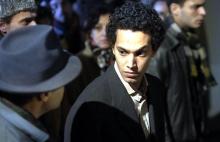
October 17, 1961
Alain Tasma- Friday, February 10 7 PM
France, 2005Inspired by the fiction/documentary blends of such socially committed British filmmakers as Alan Clarke and Ken Loach, and by the incendiary force of The Battle of Algiers, director Tasma reimagines an event that has been shamefully ignored in France’s textbooks, but whose scars still linger.
-
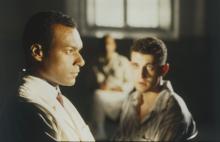
Frantz Fanon: Black Skin, White Mask
Isaac Julien- Thursday, February 2 7 PM
United Kingdom, 1995Combining archival footage, interviews with experts, and stark depictions of the Algerian revolution from The Battle of Algiers with dramatized tableaux to extend theorist Frantz Fanon’s challenge to people of all races, director Julien creates an intellectually provocative portrait of Fanon.
-
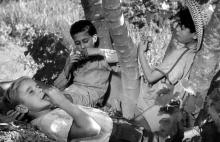
The Olive Trees of Justice
James Blue- Thursday, January 26 7 PM
France, 1962Digital Restoration
Blue tells a powerful story of common people living and struggling in their daily lives, while providing a valuable testimony to the complexity of the Algerian struggle for independence. “A neorealist take on the Algerian War made with nonprofessional actors is newly restored and still resonates today” (J. Hoberman, New York Times).
-
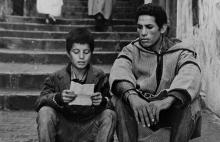
The Battle of Algiers
Gillo Pontecorvo- Thursday, January 19 7 PM
Italy, 1966One of the best films on revolution ever made, Pontecorvo’s agit-prop classic concerns Algeria’s struggle for independence against its French overlords. “A masterpiece! Surely the most harrowing political epic ever” (New Yorker).
-
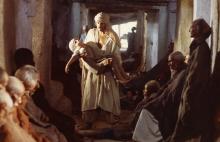
Chronicle of the Years of Embers
Mohammed Lakhdar-Hamina- Wednesday, January 18 7 PM
Algeria, 1975Digital Restoration
An Algerian farmer lives through drought, colonial injustice, and the dawn of independence in this astounding combination of African revolutionary fervor, Bollywood-style pulp, and Cinemascope beauty. “The most magnificent film to ever come from the Third World” (Albert Johnson).
Introduced by Soraya Tlatli

